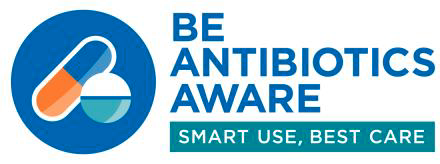 Bellevue Medical Center (BMC) is a community hospital campus of Nebraska Medicine. In 2017, our Nebraska Medicine Antimicrobial Stewardship Program expanded to include BMC with the expansion of our ASP expertise at our main campus. Danny Schroeder, a pharmacist at BMC, was recruited to lead the stewardship activities on that campus, with expertise provided by Dr. Jasmine Marcelin. In celebrating #AntibioticAwarenessWeek, Danny shares his thoughts on community stewardship. Danny can be found on Twitter at @dkschroePharmD
Bellevue Medical Center (BMC) is a community hospital campus of Nebraska Medicine. In 2017, our Nebraska Medicine Antimicrobial Stewardship Program expanded to include BMC with the expansion of our ASP expertise at our main campus. Danny Schroeder, a pharmacist at BMC, was recruited to lead the stewardship activities on that campus, with expertise provided by Dr. Jasmine Marcelin. In celebrating #AntibioticAwarenessWeek, Danny shares his thoughts on community stewardship. Danny can be found on Twitter at @dkschroePharmD
Antimicrobial stewardship is becoming more important every day. The CDC just released Antibiotic Resistance Threats in the United States, 2019 in which the Director of the CDC warns that we are now in the post antibiotic era. Antimicrobial stewardship needs to be a global effort, and everyone in every health care setting can help.
In a recent JAMA article, the feasibility of antimicrobial stewardship interventions in community hospitals was evaluated. Local pharmacists were trained on how to address common stewardship questions and anticipated arguments. They utilized two different mechanisms: pre-authorization of antimicrobials (PA) and post prescription review of antimicrobials (PPR). Pharmacists received bimonthly feedback from the study site during the trial period. They found that while feasible, the mechanisms used in the study did not result in major improvements in antibiotic use. PA was found to be ineffective, while PPR resulted in a statistically significant reduction in antibiotic use, however, the absolute reduction in use was only about 5%.
At the Bellevue Medical Center, I employ the PPR mechanism when performing antimicrobial stewardship. This leads to more discussions with clinicians and allows me to create stronger relationships with them. With stronger relationships comes more trust that my recommendations are appropriate and that they follow guideline-based therapy. To aide me in my stewardship endeavors, I have the privilege to discuss complex patients with an ID expert at Nebraska Medicine, Dr. Jasmine Marcelin, twice a week. I learn something new almost every week and am able to take that knowledge forward to continue to improve my stewardship practice. In addition, I can contact expert antimicrobial stewardship pharmacists at Nebraska Medicine for assistance if needed.
Having local expertise and leadership support is something the pharmacists did not have in the JAMA article mentioned above. The pharmacists also only received bimonthly feedback while I get assistance twice a week. I believe stewardship activities supported by ID experts is a crucial step a successful stewardship program at a community hospital where pharmacy staff may not be formally trained in infectious disease and antimicrobial stewardship. Having this expertise readily available is invaluable. It increases my confidence with my recommendations and I know the interventions I make are making a positive impact on patient care.
One last item I would like to mention is #IDTwitter. I was reluctant to join Twitter for quite some time, thinking it was another “time-suck” like Facebook. I was very wrong. I have learned many great pieces of information from multiple ID experts in the US and around the world on Twitter. In community hospital settings where ID expertise may not be readily available, knowing where to find information is key. #IDTwitter is a great place to start as there are a multitude of ID experts sharing their pearls of wisdom and analysis of newly released studies every day.
We are in the post antibiotic era. No matter which healthcare setting you are a part of, you can help. Join me and the countless others in the US and around the world in the fight against antimicrobial resistance. #BeAntibiocisAware.
